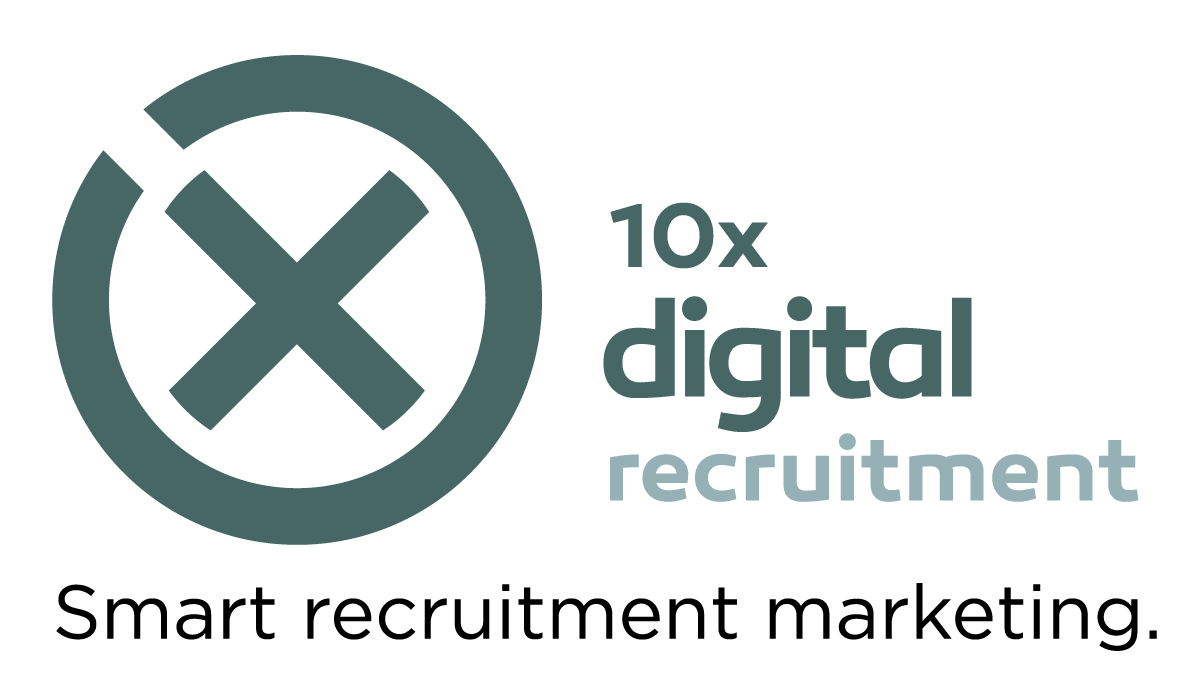Talent acquisition remains a top-of-mind challenge for HR teams across all companies and industries. Fortunately, artificial intelligence (AI), one of many recruiting trends, can streamline this process for an efficient and successful recruitment campaign.
According to research from Zippia, 65 percent of HR managers currently use AI platforms to locate, screen, and hire new employees. What’s more, 96 percent of senior HR executives feel AI will enhance their talent acquisition and retention overall. Given this data, it’s not surprising that AI recruitment’s market value grew by $50 million from 2022–2023 and will likely reach $942 million in the next ten years.
As this technology advances, let’s explore how HR leaders can capitalize on the latest AI recruiting trends to attract sought-after candidates:
Talent Sourcing
AI-driven talent sourcing is one of the most helpful recruiting trends to come on the scene. While traditional posting or screening methods can be labor-intensive and time-consuming, AI automates the process with algorithms trained to match job specifications to talent qualifications. These tools create a more objective selection process based on actual skills, which can lower the risk of human bias that often occurs with manual screening.
Not only does AI software evaluate resumés, but it can identify potential candidates who might not otherwise apply. When AI handles sourcing and screening, it allows you to cast a wide net across the talent pool, cutting out the extra manual work of finding applicants.
Predictive Analytics
In the hiring process, there’s frequent talk of “candidate fit,” but how do you measure a quality that feels intangible? That is where AI predictive analytics comes in. This machine learning tool evaluates historical data from your previous hiring decisions to locate patterns and forecast the likelihood of being able to retain a new candidate. This technology helps you hire someone who will thrive within the current organizational structure. As a result, you’ll set the candidate up for success in their new role while reducing the potential for turnover.
Automated Interviews
A recent survey found that 54 percent of organizations hire employees across two or more international borders. It can be a logistical hassle to coordinate—not to mention conduct— interviews with applicants in different locations or even time zones.
With an AI scheduling tool, you can find a suitable time slot for both the candidate and the interviewer. Then, once a specific time is officially on the calendar, it will send out automatic reminders, along with directions to access the physical location (or virtual platform) where the interview will occur. Some programs can also conduct preliminary video interviews to determine which candidates are qualified to move on to the next round.
Chatbot Communication
In an era of instant communication, job seekers expect immediate answers to their inquiries. As such, chatbots have quickly become a recruiting trend. According to the Chatbots for Recruiting Benchmarks Report, this AI technology converts 95 percent more leads on career search websites. Not to mention, it will increase the likelihood of applying by 40 percent.
Chatbots benefit your hiring process by responding to questions 24/7 in a conversational format that mimics natural human speech. These tools can move candidates through all touchpoints of the recruitment journey in real-time, so you won’t have to monitor progress or oversee communication after working hours.
Diversity and Inclusion
In today’s business climate, HR recruiters must prioritize diversity and inclusion to stay competitive and attract the most qualified global talent. However, while 57 percent of surveyed organizations have started to retool their hiring policies to reflect more diversity and inclusion, just 29 percent of employees think these efforts are successful.
As the data shows, there is an apparent disparity between recruitment goals for DEI and the actual execution of those initiatives—but AI can help to resolve this. AI software makes it easier to automatically source candidates from various demographics, locations, and cultures. Plus, it also minimizes human bias so applicants can get an interview based on their qualifications and experience without unconscious discrimination.
Augmented or Virtual Reality
The final AI innovation we’ll discuss is still in development, but it’s one of the most exciting and revolutionary talent recruiting trends. Major corporations like BMW use augmented and virtual reality (AR/VR) software to build realistic online simulations. Job seekers can immerse themselves in a replica of the work environment and remotely interact with the current team members.
Not only does this give potential hires a feel for the office culture and particulars of the role, but it also helps you evaluate how each candidate performs in various work scenarios. For instance, you can visualize leadership, collaboration, decision-making, communication, or problem-solving skills to determine if they can adapt to the job’s requirements.
AI and the Future of Recruitment
AI can streamline, automate, and enhance all facets of recruitment—from sourcing the candidates to making the final employment offer. To stay ahead of the curve and capitalize on these recruiting trends, contact our specialists at 10x Digital. We’ll show you how to implement AI into your recruitment process for seamless acquisition, long-term retention, and overall success.
